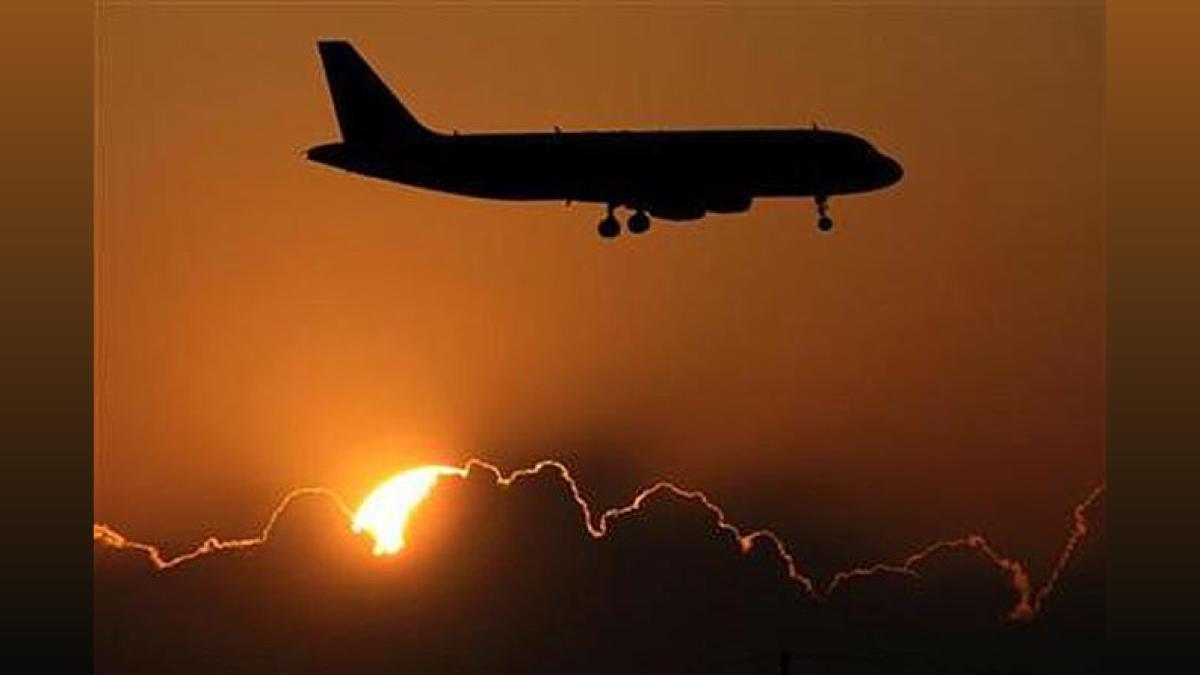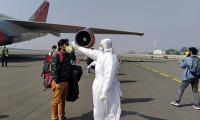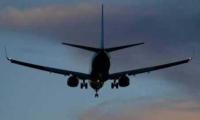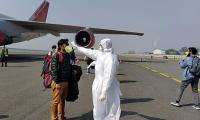DGCA Enforces Stricter Breath Analyzer Norms for Aviation Personnel
India's DGCA mandates daily breath analyser tests for 25% of air traffic controllers, aircraft maintenance engineers, and safety-sensitive personnel, using fuel cell technology for enhanced accuracy.

New Delhi, Feb 29 (PTI) Aviation regulator DGCA has mandated that at least 25 per cent of the air traffic controllers, aircraft maintenance engineers, and personnel carrying out safety-sensitive work at an airport will have to undergo a breath analyser test daily.
Besides, only fuel cell technology-based breath analyser equipment will be allowed for conducting the tests. These equipment are considered more accurate.
The revised Civil Aviation Requirements (CAR) in this regard will come into force after three months, the Directorate General of Civil Aviation (DGCA) said in a release on Thursday.
Currently, the breath analyser test percentage required is 10 per cent and that has been increased to 25 per cent.
It will be applicable for air traffic controllers, ground staff, aircraft maintenance engineers, and ground handling services personnel.
According to the regulator, revisions have been made to the CAR on the procedure for breath analyser examination of the personnel engaged in safety-sensitive work such as aircraft maintenance, air traffic control services, aerodrome operations, and ground handling services for detecting the consumption of alcohol.
DGCA said the revision in the CAR will further enhance the level of safety and is an effective step in view of the increase in air traffic and ground movements at airports.
The amended norms will be effective after three months from the date of issue in order to provide adequate time to the industry to suitably enhance the existing infrastructure for breath analyser tests at various locations, it added.
Besides, only fuel cell technology-based breath analyser equipment will be allowed for conducting the tests. These equipment are considered more accurate.
The revised Civil Aviation Requirements (CAR) in this regard will come into force after three months, the Directorate General of Civil Aviation (DGCA) said in a release on Thursday.
Currently, the breath analyser test percentage required is 10 per cent and that has been increased to 25 per cent.
It will be applicable for air traffic controllers, ground staff, aircraft maintenance engineers, and ground handling services personnel.
According to the regulator, revisions have been made to the CAR on the procedure for breath analyser examination of the personnel engaged in safety-sensitive work such as aircraft maintenance, air traffic control services, aerodrome operations, and ground handling services for detecting the consumption of alcohol.
DGCA said the revision in the CAR will further enhance the level of safety and is an effective step in view of the increase in air traffic and ground movements at airports.
The amended norms will be effective after three months from the date of issue in order to provide adequate time to the industry to suitably enhance the existing infrastructure for breath analyser tests at various locations, it added.
You May Like To Read
TODAY'S MOST TRADED COMPANIES
- Company Name
- Price
- Volume
- Vodafone Idea L
- 8.19 ( -0.49)
- 57919628
- AvanceTechnologies
- 0.64 ( 0.00)
- 25522388
- Standard Capital
- 0.52 ( -3.70)
- 16619978
- GTL Infrastructure
- 1.53 (+ 2.68)
- 15285011
- YES Bank Ltd.
- 17.95 (+ 3.16)
- 12503288






 © 2025 Rediff.com India Limited. All rights reserved.
© 2025 Rediff.com India Limited. All rights reserved.